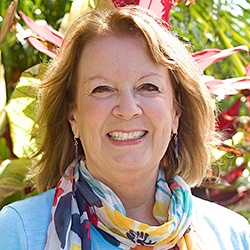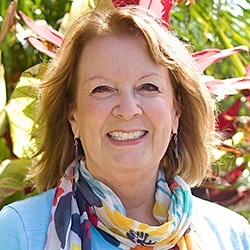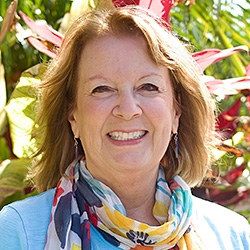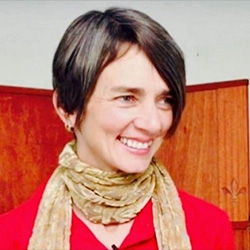

Search Results: choice
-
Trainer Tip: Only after we connect to our unmet need can we make sound decisions that will transform our experience. For example, if you feel bored, connect to your unmet needs (eg. need for understanding the relevance, etc) and then look for strategies that will meet them (eg. ask the speaker how this topic relates to our lives).
-
Trainer Tip: With empathy, ponder one area of your life that you are unhappy with today. Consider whether you can take action to change the experience and meet your needs.
-
Turn feedback into a path for learning and growth by understanding what makes it challenging.
-
We can choose our stories of interpretation, and how to respond. And while stories of self-sufficiency can (to a degree) give us more influence over our own lives, they don't erase oppression, war, nor climate change. When stories omit a lens that includes impacts of interdependence, oppression, and structural inequities, stories can also keep us disconnected and blocked from compassion for self and others -- and perpetuating an oppressive status quo. However, with this lens we can make greater compassion and collective liberation possible. Even as the outcome is unknown.
-
Understanding how our brains operate in relation to power, privilege and status is important if we wish to build a world that works for all. This article gives an overview of the brain tendencies we have in relationship to groups, and provides remedies to counteract the automatic labor-saving devices of our human brains (which often prevent us from seeing the fullness of others, and our own, humanity).
-
Here are 14 more key differentiations that are not, at time of publishing this, on the CNVC key differentiations list. They can be used to support people who are on the path of learning and integrating NVC in making sense of their own understanding of their journey and where they are within it. And it can be used to support people who share NVC with others in offering brief information in support of understanding and learning.
-
Trainer Tip: If you are motivated by fear, guilt, blame or shame, your actions will usually be motivated by avoiding pain. The best way to experience permanent, lifelong change is to focus on how your life will improve when you make a change. Notice when you attempt to motivate yourself and others with guilt, blame, or shame today, and then look for motivations that enrich life instead.
-
Even in the face of societal upheavals we can look for what's in our power to change. For example, we can participate in systemic change, and heal whatever we need to heal that which keeps us from living our values more readily. We can take the time to be present to those in pain, and to show up fully in our lives even when we feel stress. We can take strides to make a difference towards creating the world we want to live in.
-
Oren Jay Sofer explains how we can stay grounded and maintain choice during overwhelming or emotionally charged conversations. He highlights the importance of presence—feeling our feet, noticing our breath, and expanding our awareness—to counter the fight-or-flight response and self-regulate. Oren also teaches a simple three-part structure for pausing a conversation without damaging the relationship: affirm the connection, state your limit, and offer a next step. By practicing and even memorizing a short version of this framework, we can exit challenging moments with clarity, care, and self-respect.
-
An anchor awakens parts of you that can access a bigger perspective. Also, it can reduce your reactivity, increase conscious relating, and support self-compassion. An anchor helps you get a little bit bigger than the reactivity you are experiencing so that you can access a wiser discernment. It is simple, and can be done anytime and anywhere. Learn to direct your attention to develop your anchor in self-empathy.
-
For this practice assume that reactivity is arising any time you are distracted and not enjoying something. Practice throughout the day by focusing your attention for a few moments on something specific that you find pleasing. Notice the sensation of joy or pleasure in your body, and hold attention there longer than usual. This interrupts tension and contraction. Keep remembering to do this. When you go too long without directing your attention in this way, the practice becomes less accessible.
-
In groups, relationships and society we may not want to dominate or take away from others’ access to power, to choice, to participation in decisions, nor to shaping the vision and direction of the dynamic. And yet how do we do it anyway without knowing it? Discover how privilege operates on a societal level and becomes so invisible in groups. Learn why the conversation is usually excruciating for members of both privileged and under privileged.
-
This single-page handout illustrates the steps to translating habitual judgments and actions into observations, feelings, needs, and requests (OFNR).
-
During the holiday season we may find ourselves taking responsibility for other's feelings, which can lead to guilt, shame, depression, and resentment. These feelings are exacerbated by the habitual pattern we call the "Vortex of Submission" (being hooked by a sense of duty and obligation). Read on for ways to recognize and break the pattern.
-
When you want to be heard, first check if your listener is available. This honors yourself, and the other person’s choice about listening. You need to be clear about wanting a particular quality of listening, and that you are willing to wait if that isn’t available in the moment. Read on for how to ask for listening in a way that can build trust that your request isn't a demand.
-
Children often ask adults “Can I…?” This question is so common that we carry it with us into adulthood, often addressing each other in the same way -- and more so with those we see as authority figures. However, let's unpack how this phrasing can reaffirm power differences. And see how, instead, we can transform paradigms of power in a way that invites dialogue, and co-creates an outcome that we can mutually benefit from.
-
This video with Jim and Jori Manske explores how to navigate polarizing conversations.
-
Join Elia Lowe-Charde as she shares a story that beautifully illustrates how boundaries are akin to consciously directing our precious energy. She artfully expands upon this concept by highlighting that life-serving boundaries embody the wisdom of discernment.
-
Much like other asymmetric relationships (such as therapist and client), there are complications related to power dynamics that can arise with any NVC trainer having sex with a participant. For one, there's (counter)transference. And there's potential for things that may not move outside this asymmetric relationship -- such as projections where the participant, and/or the trainer, is guided by un-healed pain of their "inner child".
-
Quick Links

Stay in Touch!
We value your privacy, won't share your email address and you can easily unsubscribe any time.


















